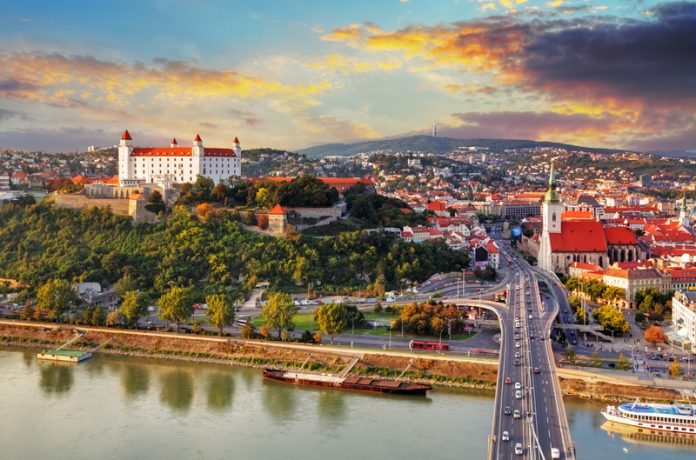Peter Plavčan, Minister of Education, Science, Research and Sport shares how the Slovak Republic strengthened innovation during its EU Council Presidency
Today, research and innovation performance is a crucial determinant of competitiveness and national progress in modern societies. Moreover, innovation is important for addressing global challenges, such as climate change and sustainable development. The importance of the socio-economic effect of investments in scientific research is reflected in the international competitiveness of the state and in the living and cultural standards of the population.
However, despite the importance of innovation, many countries face difficulties in strengthening performance in this area. During the Slovak Presidency of the Council of the European Union, we tried to use the offered opportunity to promote European science and research, and Slovakia’s contribution in these areas, by showcasing sectors that we consider especially important and beneficial.
We have laid down a number of priorities in this sphere – support for young researchers, increasing the attractiveness of the scientific professions, improving the framework conditions for researchers in the European Union with regard to their effect on employment, growth, the economy and competitiveness, and intensification of relations between the EU and the European Space Agency.
Innovation brings competitiveness
It is evident that innovation is the key to ensuring the competitiveness of European states in a globalised marketplace. Innovation is the result of scientists and researchers finding new solutions to problems, both old and new. It is vital to the interests of the European Union that it provides the broadest possible support for highly qualified specialists who make up one of our most important forms of capital. It will be necessary to increase efforts to promote careers in the sciences and other beneficial professions because they are not respected enough in many cases, nor do they offer a direct career ladder.
It gives me a strong sense of satisfaction that despite often working in more difficult conditions than their colleagues abroad, Slovak researchers manage to compete with the best in the world in some areas, for example within the research of materials and nanotechnology, ICT, biomedicine and biotechnology, environment, and sustainable energy, etc.
We can also be proud that our researchers and local companies are making an active contribution to today’s largest infrastructure projects such as CERN or the European x-ray free-electron laser (European XFEL). I consider this another step in the right direction that Slovakia became a cooperating state of the European Space Agency a few months ago since this does not only open the way for us to participate in high-level technological research but also has a growing influence in everyone’s daily life.
In recent years, the EU’s structural funds have funded the construction of a number of science parks at Slovak universities and the Slovak Academy of Sciences. They provide a good foundation and essential infrastructure for further progress. Now we face the challenge of maintaining development of these facilities and attracting the best specialists to work there. This includes young scientists at the doctoral or post-doctoral level, who often have trouble finding research opportunities in
Slovakia and frequently go abroad to look for better conditions. We would be very glad if these centres were able to offer researchers interesting opportunities to enable them to stay in Slovakia as well as attracting foreign researchers.
The Slovak Academy of Sciences is also going through changes. An act to transform its institutes into public research institutions was drafted a while ago. In my view, it should be passed as soon as possible to increase the competent areas of research and development that can be explored, and to interlink the public and private sector with the aim of generating new institutional and social forms for the production, transfer and application of knowledge.
I hope that these activities that we plan to implement will not only increase the attention given to science and research here in Slovakia, but also promote our results and our potential on the European level. That is something that we would all benefit from.
Peter Plavčan
Minister of Education, Science, Research and Sport
Ministry of Education, Science, Research and Sport of the Slovak Republic




![Europe’s housing crisis: A fundamental social right under pressure Run-down appartment building in southeast Europe set before a moody evening sky. High dynamic range photo. Please see my related collections... [url=search/lightbox/7431206][img]http://i161.photobucket.com/albums/t218/dave9296/Lightbox_Vetta.jpg[/img][/url]](https://www.openaccessgovernment.org/wp-content/uploads/2025/04/iStock-108309610-218x150.jpg)






